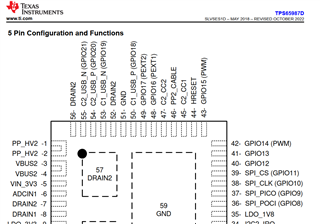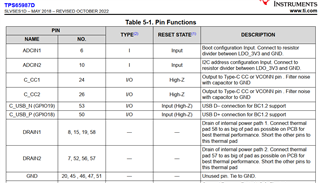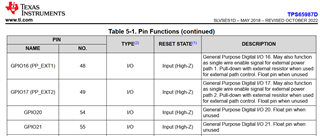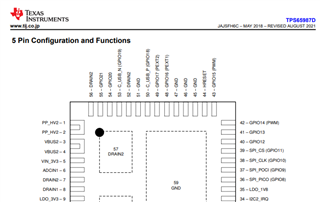Other Parts Discussed in Thread: TPS65987, TPS65988
Hi all,
In TPS65987 SLVSES1D – MAY 2018 – REVISED OCTOBER 2022 datasheet(Rev.D),
See the following pins at "5 Pin Configuration and Functions" Figure5-1,
45.C2_CC1
46.PP2_CABLE
47.C2_CC2
54.C2_USB_P(GPIO20)
55.C2_USB_N(GPIO21)

These pin names are not explained anywhere in the datasheet.
Only these pins are described in the table5-1 as follows.


Can pin45,46,47 be connected to GND? And is pin54,55 good for Float?
It may not be correct to refer to an older version, but the Rev.C is below.

#45,46,47,54,55 pin description matches table5-1.
But look at pins 36 and 37. The SPI's PICO and POCI are the opposite of Rev.D.
My design has stopped. Please hurry up and let me know correct information.
Best Regards,
Yukio Oyama

